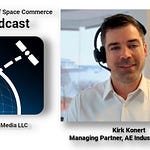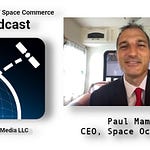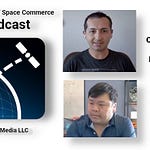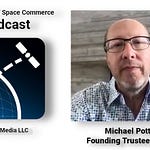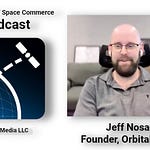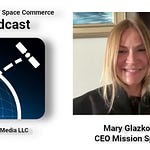The ISS National Laboratory is a research and development hub aboard the International Space Station (ISS), managed by a non-profit organization, the Center for the Advancement of Science in Space (CASIS), under a cooperative agreement with NASA. They provide access to the unique microgravity environment of low Earth orbit for scientific experiments, medical research, and technological innovation.
"We go to space not for fun but because you can do these cool things."
Phillip Irace, ISS National Lab
One of the key services provided by the ISS National Lab is facilitating collaboration between private companies, academic institutions, and government agencies to conduct experiments in space. It also supports studies on human biology, materials science, and advanced manufacturing, provides training, STEM programs, and workforce development initiatives for students and professionals, and helps translate space-based research into Earth-based applications.
On this edition of The Ex Terra Podcast, Tom Patton talks with Phillip Irace, a Program Director for the International Space Station (ISS) National Laboratory. Irace explained how that unique environment makes a difference in conducting scientific experiments.
"We go to space not for fun but because you can do these cool things," Irace said. "On the material science side, you can synthesize or process materials that have much more uniform microstructures and significantly reduce defects. You can even create entirely new structures or materials. On Earth, when you produce a material, any difference in temperature or density of the melt leads to things like sedimentation, stratification, mixing, and ultimately, these things lead to non-uniformities and defects that reduce a material's performance. So in microgravity, where these forces are eliminated, it opens up a lot of opportunity. In addition, in microgravity you have forces like surface tension and capillary forces that are not important on Earth, but when you get into microgravity, they're dominant. And you can take advantage of that to do cool things like containerless processing using spherical drops and fluidic templating. Then on the regenerative medicine side, the space environment has been shown to accelerate aging. So that's a huge advantage for studies in that area. Earlier I mentioned 3-D printing of organs and heart tissue. We also have a lot of protein crystalization research going on to identify viable drug candidates. Overall, I'd say that in microgravity, processes tend to be much slower and diffusion controlled, and this results in much higher quality final products, and that covers a wide range of applications."
The ISS National Lab has several programs that assist companies of all sizes get their experiments onto the station. Irace says companies can contact them at inquiries@issnationallab.org to get more information.






